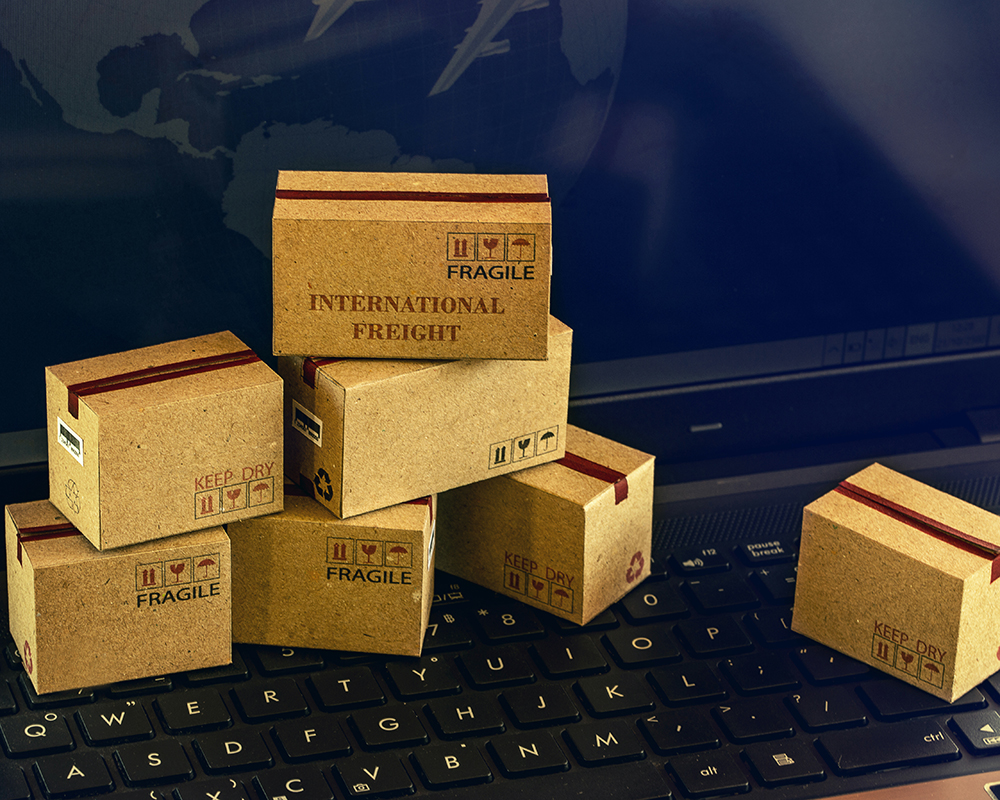What is B2B e-commerce?
Business-to-Business (B2B) e-commerce refers to the marketing, selling, and distribution of products and services between companies through online channels. It stands in contrast with Business-to-Consumer (B2C) e-commerce, where the online business transaction is between a business and individual consumers.
B2B e-commerce is a global force

While many people around the globe primarily experience B2C e-commerce, in actuality, B2B e-commerce is the more robust and valuable market. According to Statista, the global B2B e-commerce market in 2019 was valued at 12 trillion dollars – or six times the B2C market’s value. The Asia Pacific led the market share at almost 80%.
Further, Meticulous Research says that the global e-commerce market will grow at a compound annual growth rate (CAGR) of 11.1% from 2018 to 2025, reaching 24.3 trillion dollars by 2025. According to the study, the B2B segment dominates the e-commerce market due to increased globalization, higher adoption of advanced payment methods, improved mobile technology, and the growing importance of saving time, money, and resources.
B2B e-commerce comes in different forms, sizes, and levels of complexity. It covers a wide range of business models and sectors, including services such as accounting, digital, and legal, as well as physical products like consumer goods, equipment, and machinery.
B2B vs. B2C: What’s the difference?
To further understand how B2B e-commerce operates, it helps to compare it with B2C e-commerce.
- Target: B2C brands target the general public with a wide range of interests, personalities, and purchase considerations. In comparison, B2B brands usually cater to a particular set of buyers with a well-defined and specific profile.
- Sales journey: B2C e-commerce is pretty straightforward and usually mimics the in-store experience — the seller posts the product and the buyer purchases it. B2B e-commerce doesn’t follow the same linear path — customers from a wide range of industries and verticals approach purchasing through a variety of buying processes.
- Purchase value: B2B purchases are much more expensive compared to B2C. Most B2B buyers acquire products and services in big bulks, while B2C shoppers only purchase one or two products in a single transaction.
- Decision-making process: In B2C, the buyer is the sole decision-maker. In B2B, several business stakeholders must approve a purchase decision.
- Personalization: While some B2C stores offer customization, B2B businesses consider it an essential service. B2B buyers are more likely to request a personalized product list with discounted prices, customized quotations, contracts, and options for payment and shipping.
B2B and B2C e-commerce also have things in common. In both markets, the need for personalization, convenience, and mobility across multiple channels are equally important. B2B and B2C are also similarly evolving based on the trends in fulfillment, shipping, payment, and technology. Both models must establish credibility, provide valuable information about its products and services, and offer a speedy browsing experience. Understanding the clients’ needs through data collection and analytics can help significantly.
Cafe24 supports B2B merchants
Cafe24 is a global e-commerce platform for merchants to build Direct-to-Consumer (DTC) stores and expand their businesses to various sales channels. The company and its affiliates recently launched a B2B platform for merchants looking to source their products. It links merchants to fashion wholesalers in South Korea so that they can browse and order products in large quantities.
